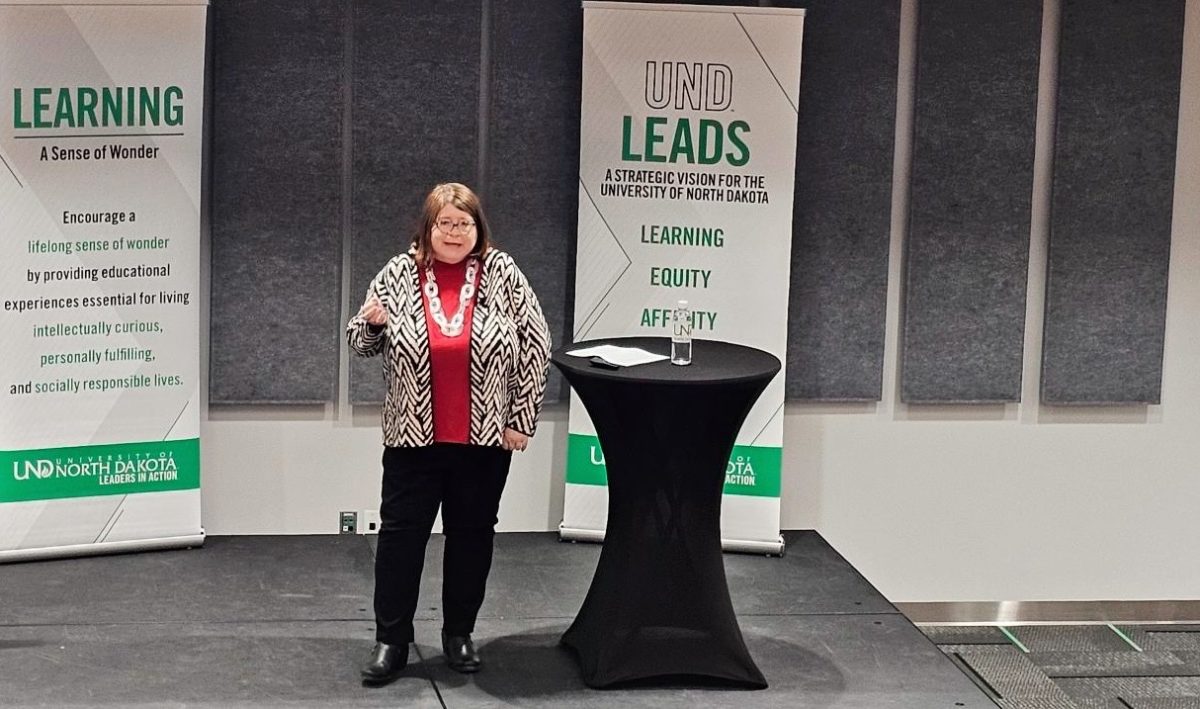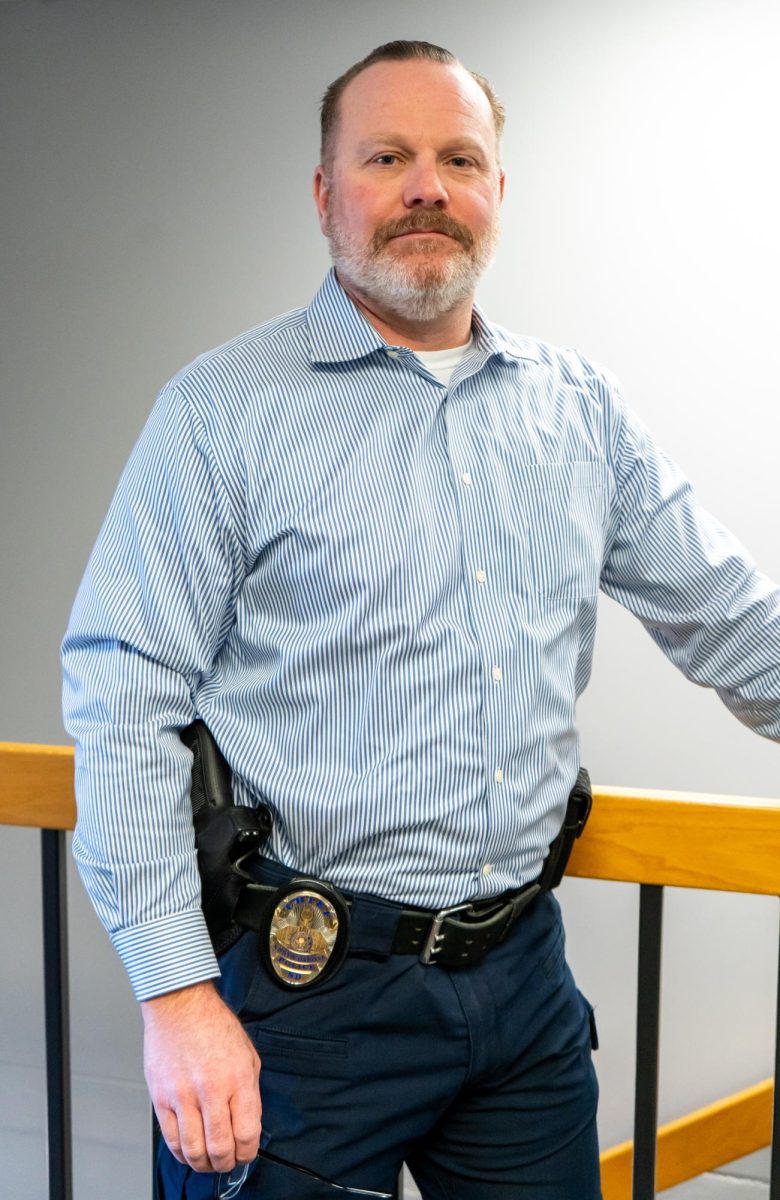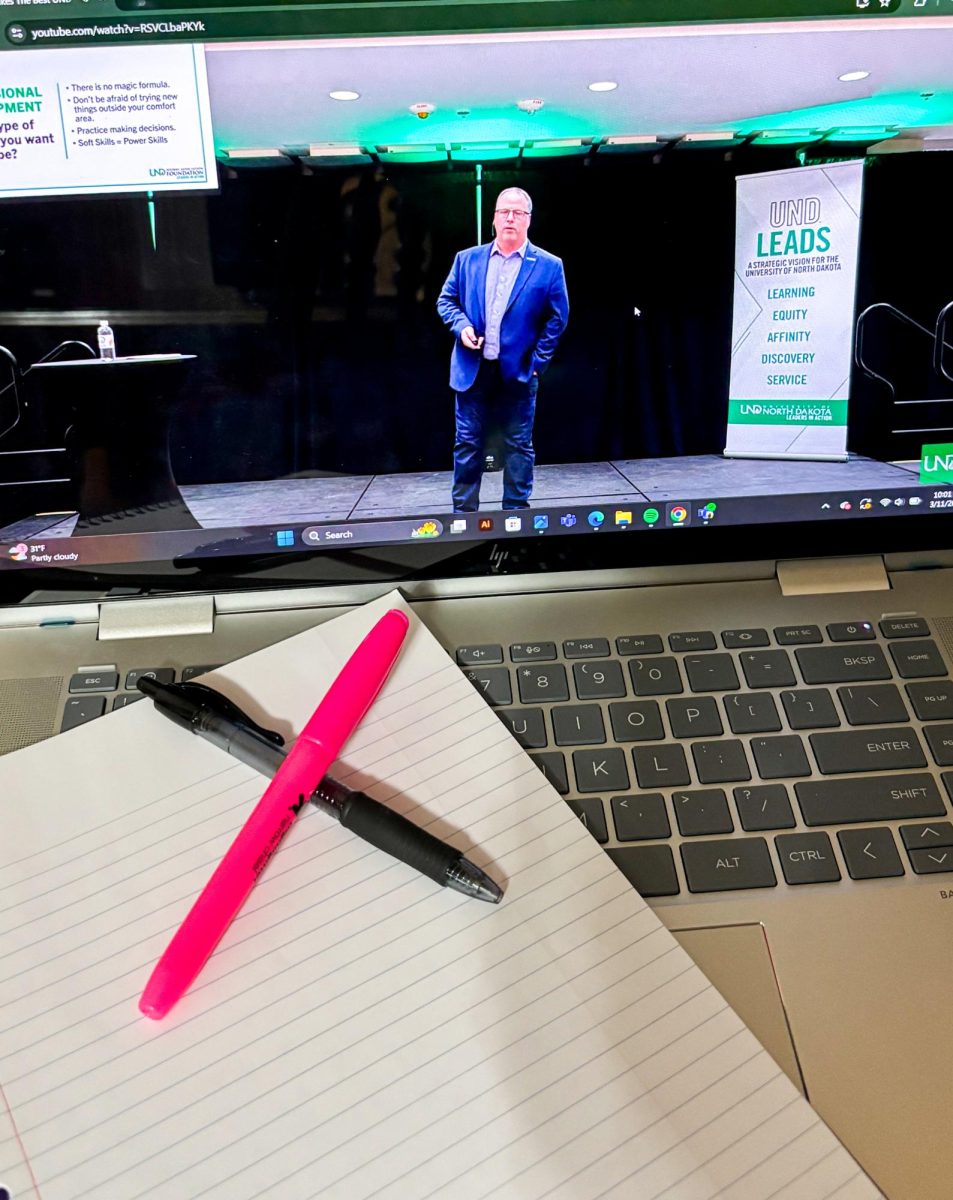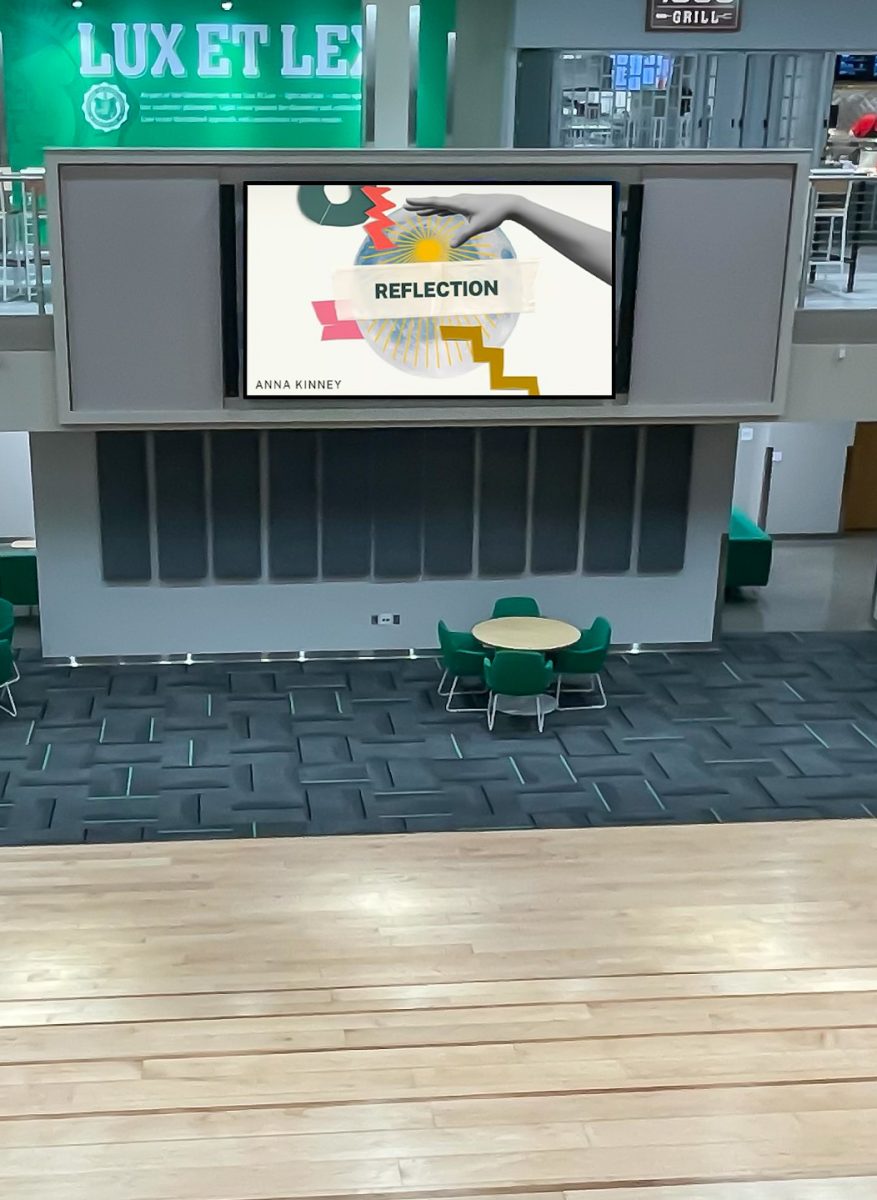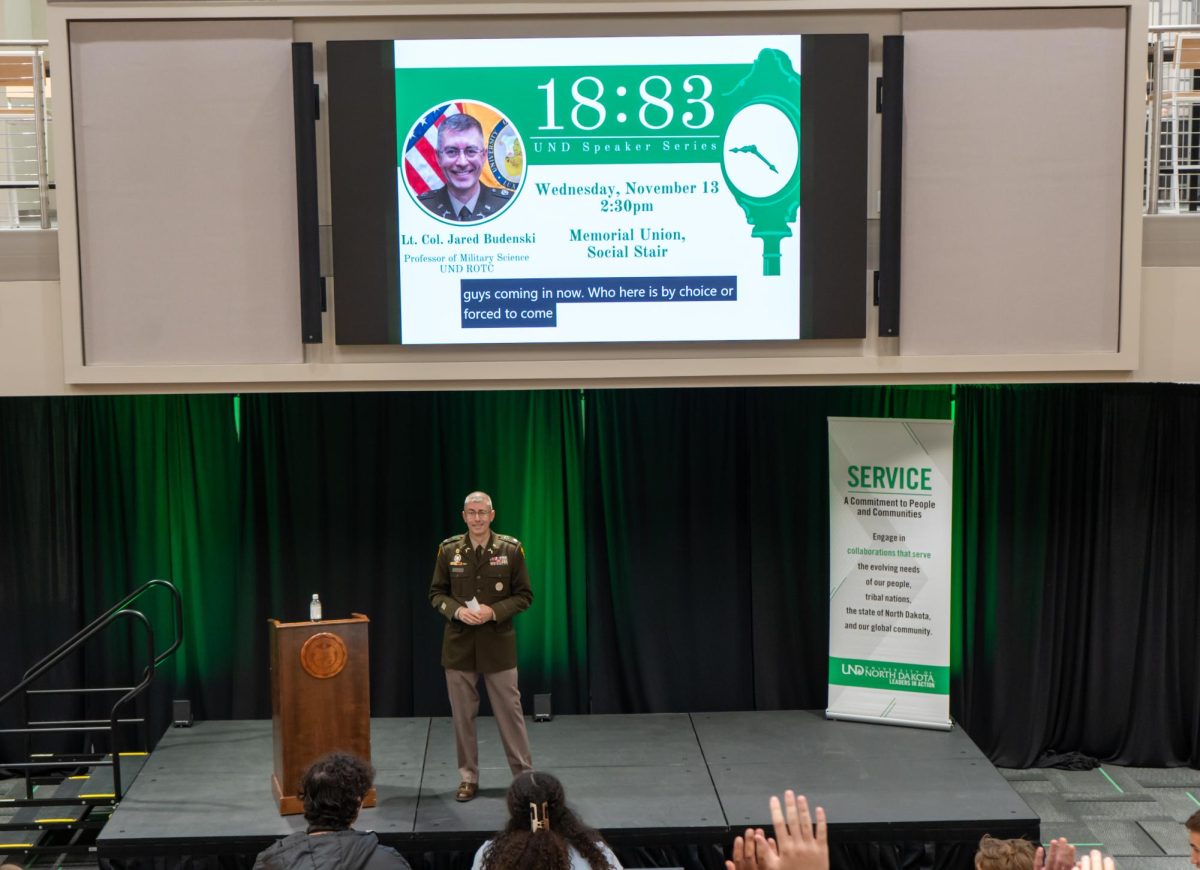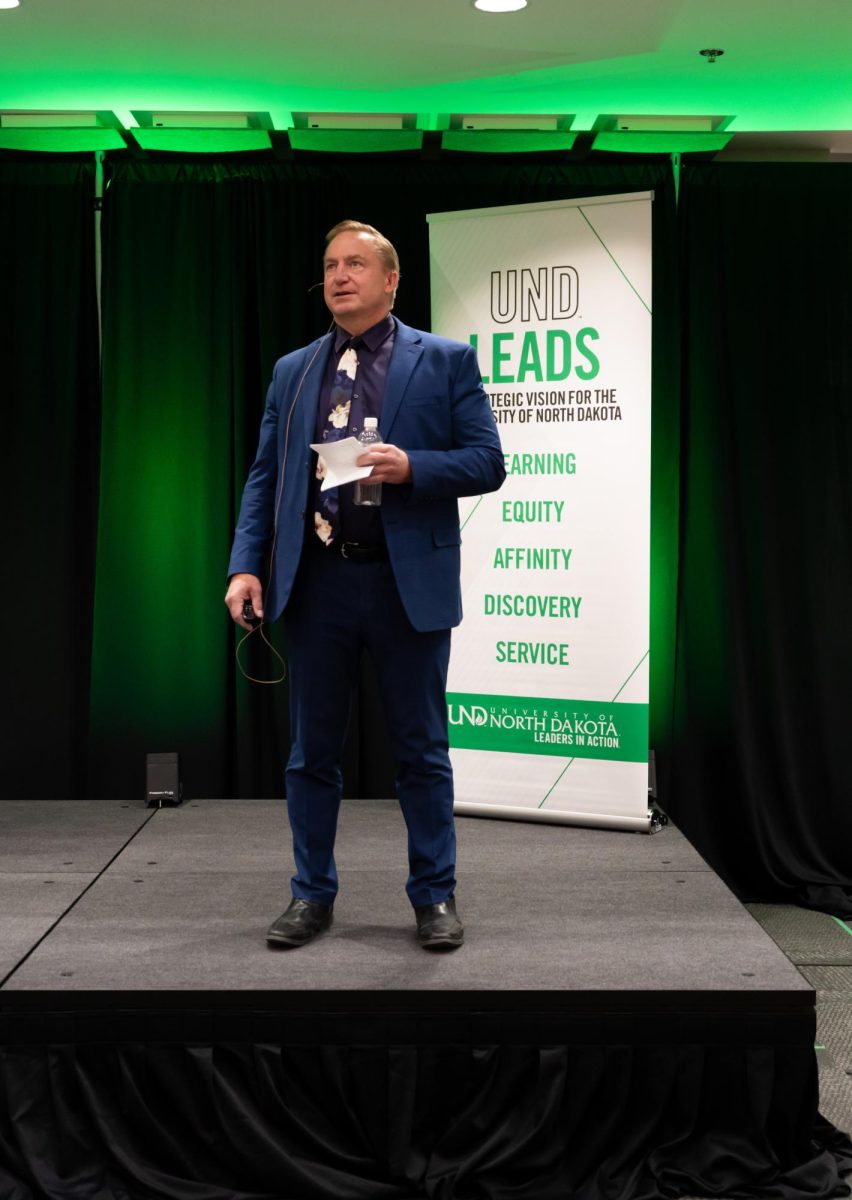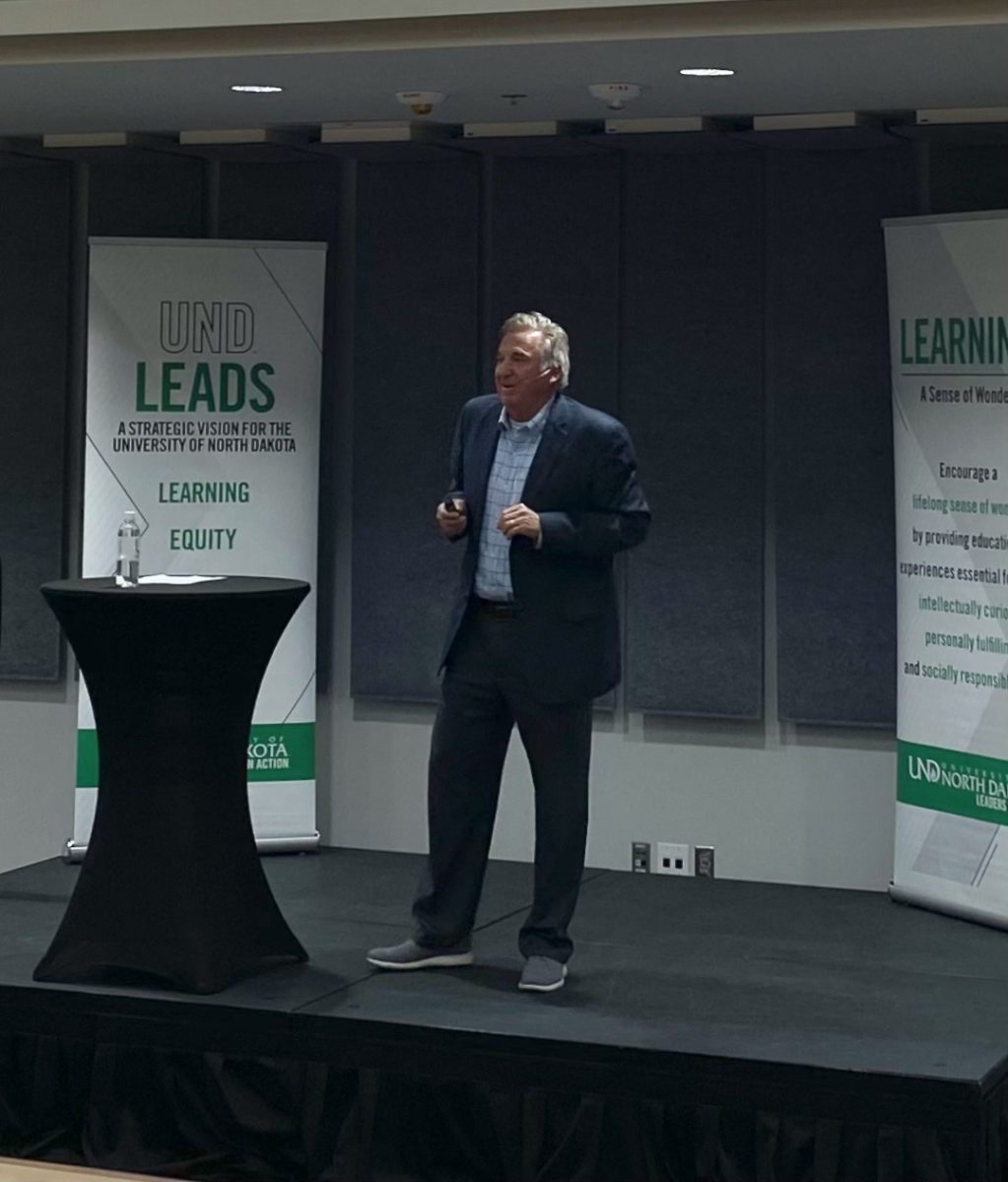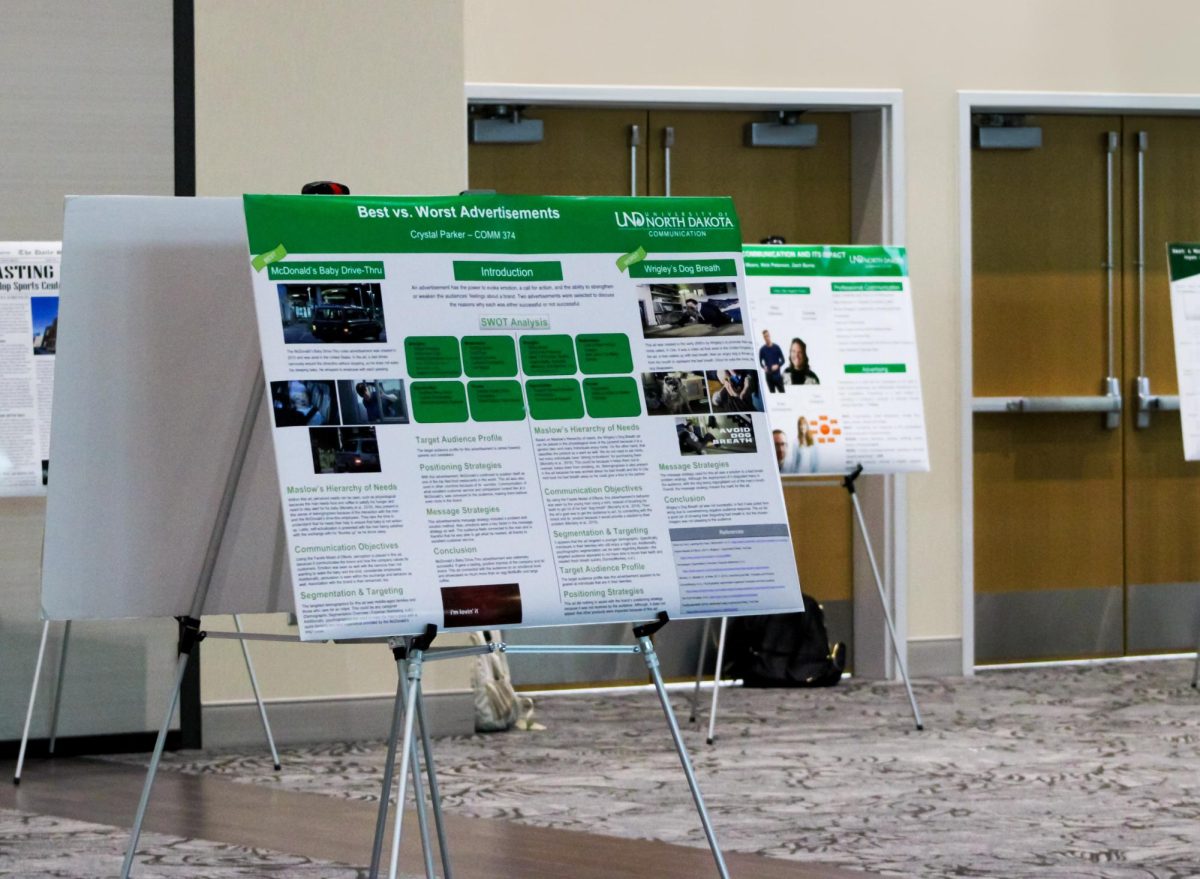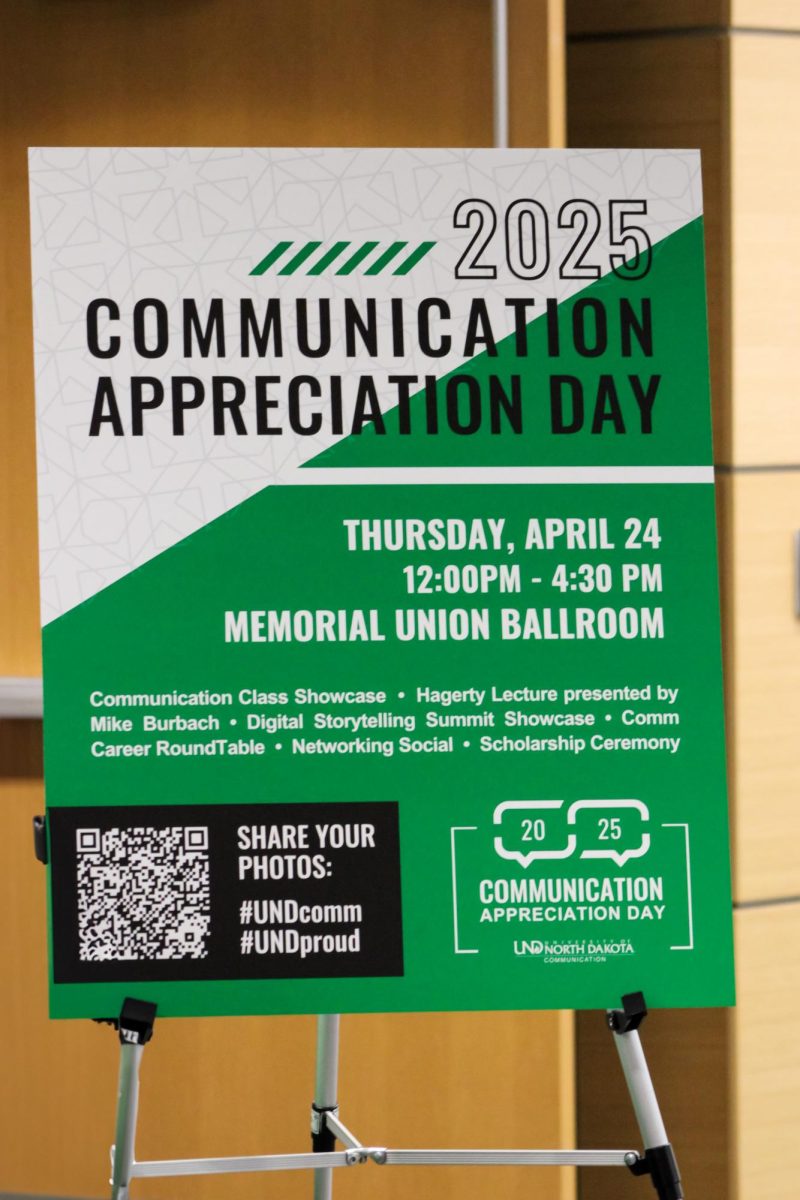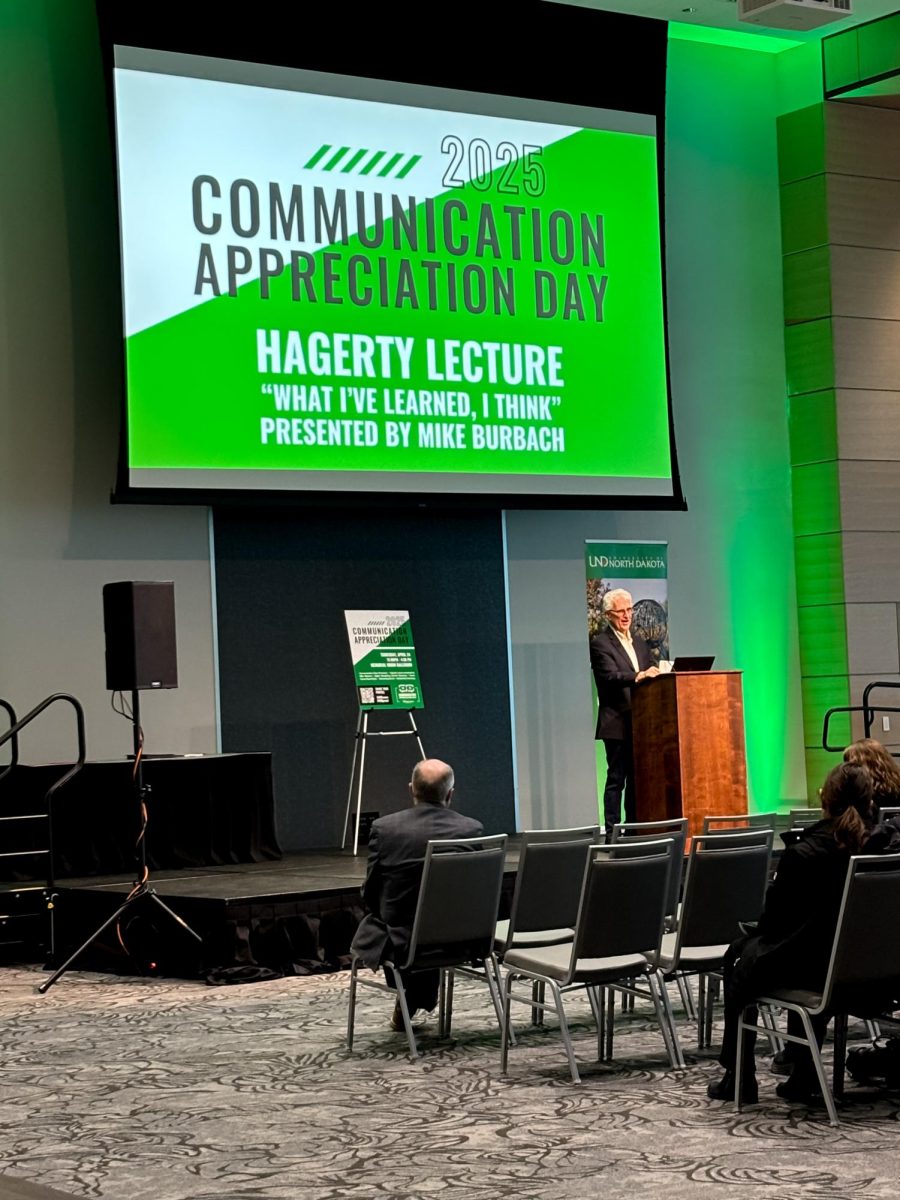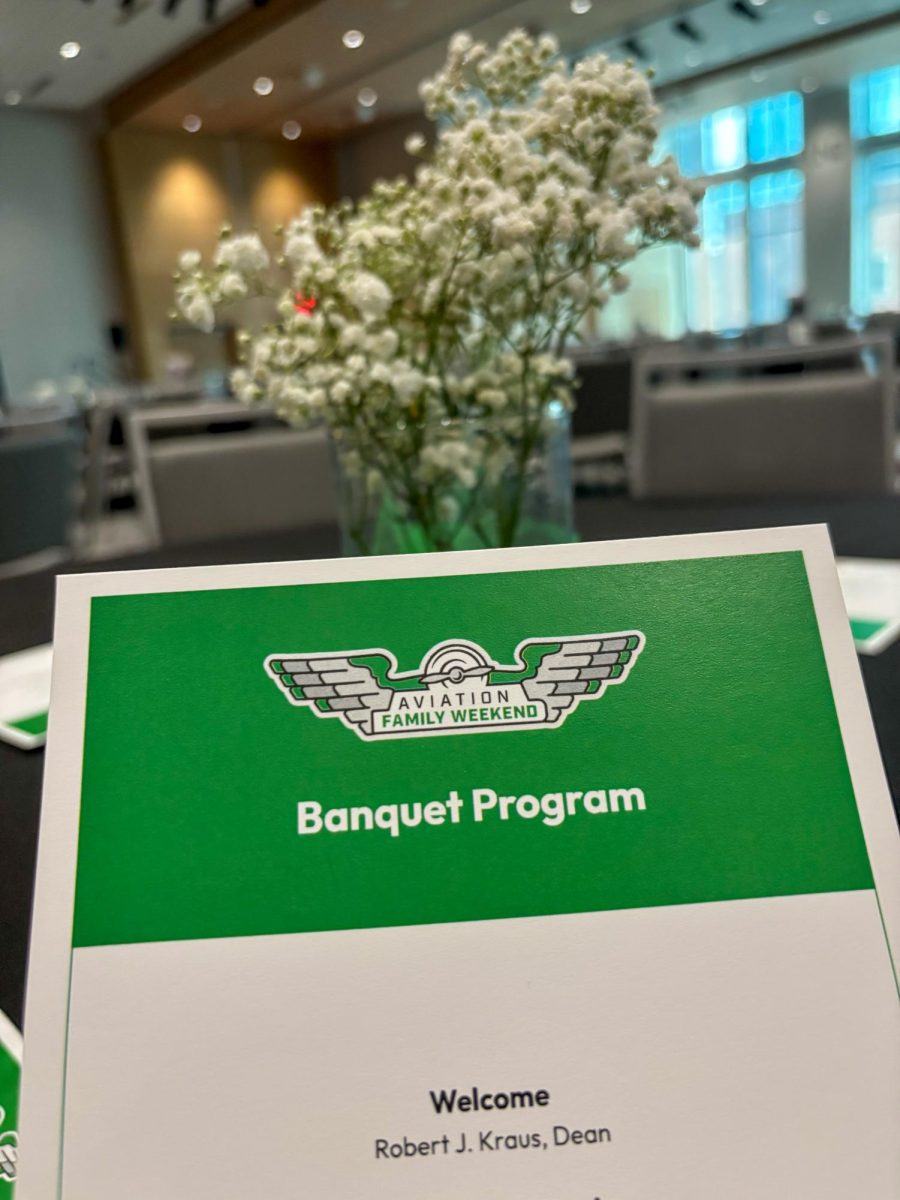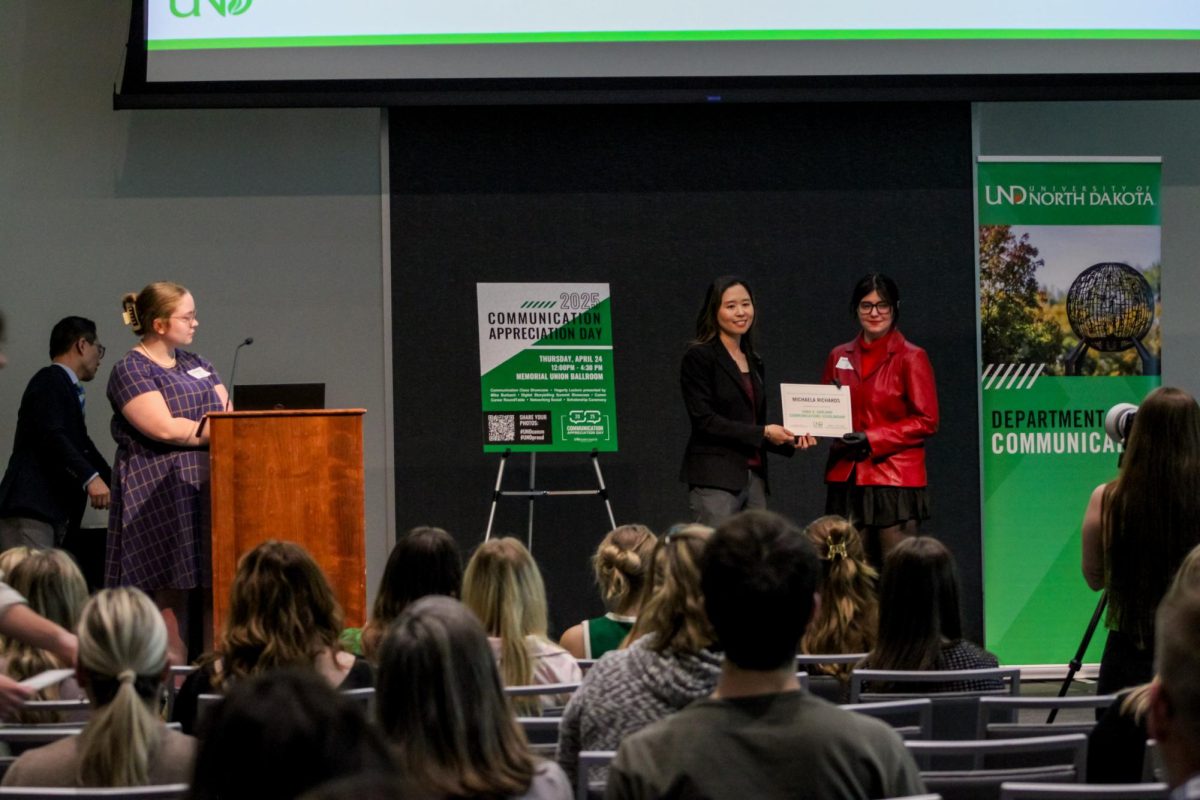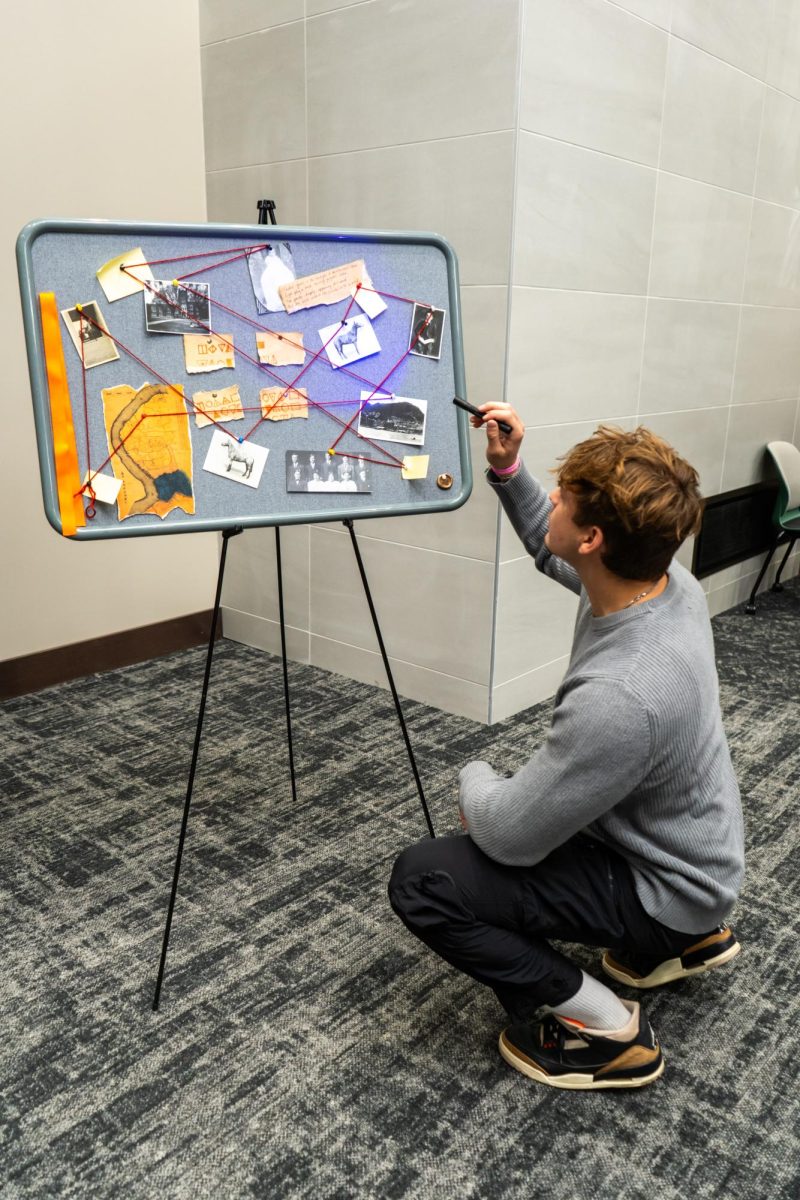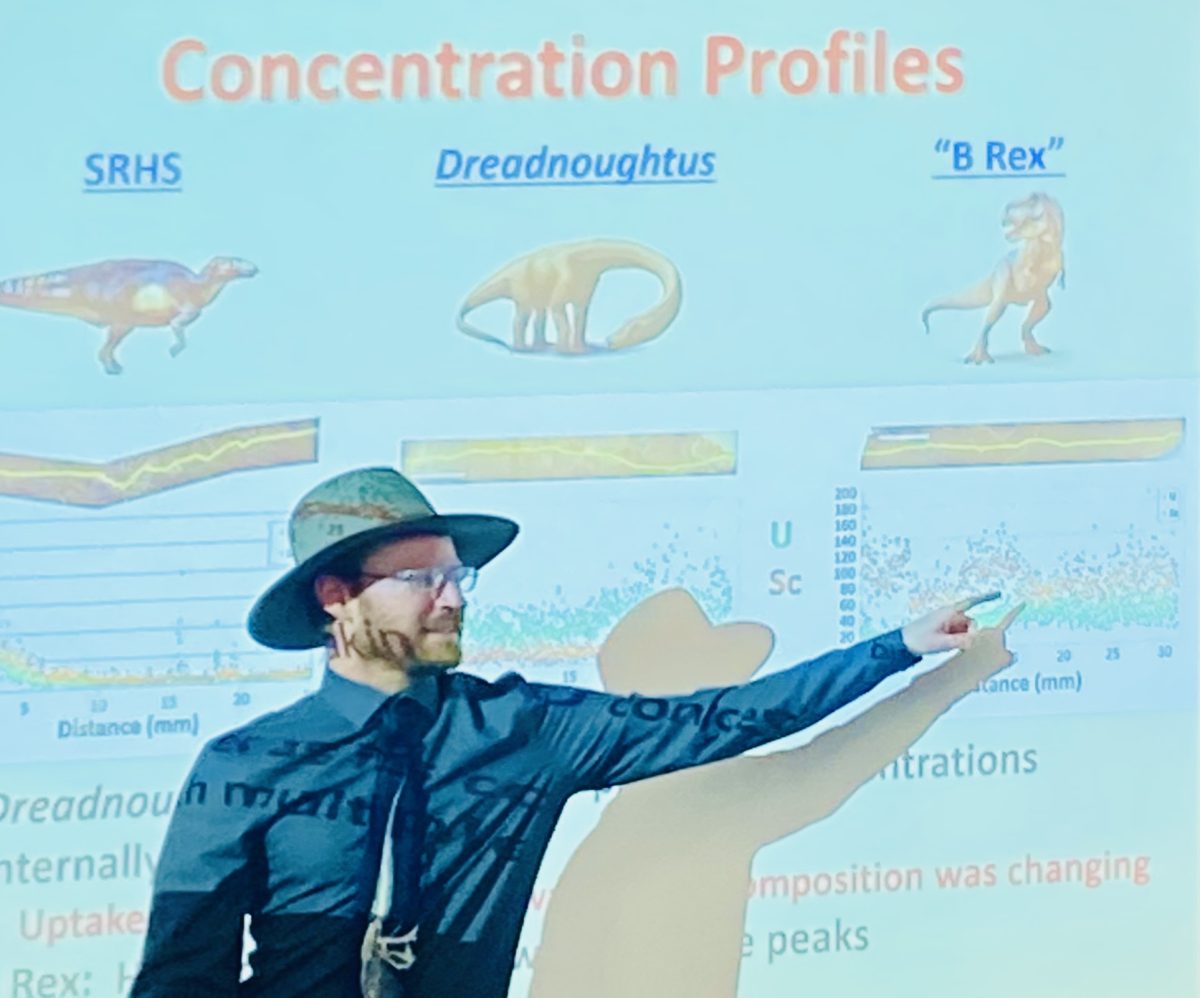On Wednesday this past week, another 18:83 Speaker Series session was held on the social stairs in the Memorial Union here on campus. This week’s speaker was Rebecca Bichel, the Dean of Libraries and Information Resources here at the University of North Dakota. Every week, the 18:83 Speaker Series aims to highlight different campus and community leaders to provide a learning experience for students and staff to gain new skills from their peers. Each speaker is given a time slot of eighteen minutes and eighty-three seconds, an ode to the year that our university was founded, to give a “TED Talk” style presentation of leadership.
Bichel’s speech was titled “Monsters, Soothsayers, and Cheshire Cats: Leadership Lessons and Legends.” She began her speech by explaining that she wants to highlight the skills and qualities of the leaders who inspire her, rather than talking about her own experiences. She explained that anyone can become a leader just so long as we are passionate about reaching a goal. She then went on to explain each of her nine leadership lessons and legends.
The first was that “leaders are monstrously ambitious.” It was in this portion of the speech that Bichel expressed the concept of BHAG, which she would circle back to throughout the rest of the speech. BHAG stands for “big, hairy, audacious goal” and can be represented by a big hairy monster. She says that every leader should have their BHAG and work to find ways to reach it.
Next, Bichel said that “leaders are map makers.” To her, this means that a good leader always has a goal and a plan to get there, and if they do not, they actively work to make their own map. She believes that “without a goal, progress can’t happen.”
Bichel then voiced that “leaders are for real.” She said that good leaders know how to be authentic and humble. She believes that this means that a leader understands that everyone is human. Meaning that they can be forgiven if they admit their mistakes and also forgive others. They should also understand how to celebrate others. Along with this, she also believes that “leaders are collaborative.” They should be able to not only work together, but to invest in other people’s ideas and goals.
Then Bichel explains how “leaders are optimistic,” meaning that you must remain positive in order to reach your goals. If you are negative, you ensure failure, but if you remain optimistic, you are more likely to succeed. Along with this, she believes that “leaders are resilient.” By this she means they understand failure is critical to success. You must be willing to make mistakes and become strong enough to continue trying.
Next, Bichel described how “leaders are experiential learners.” This is the idea that you are not born a leader. Yes, you might have some naturally developed skills, but it is essential that you work to grow to exercise the skills you learn and make sure “your tools don’t get rusty.”
The last two lessons Bichel mentioned were that “leaders are trusting,” and “leaders are soothsayers.” She believes that power does not mean leadership and that good leaders work to build trust in their relationships rather than fear. She also believes that leaders must be willing to dream about the future they can build either small or large. She said that “change is scary because it’s unknown” and that “it can feel like a critique of the known,” but if you see change as opportunity, it can become something great.
This speech was just one of the incredible learning opportunities that are offered here at UND. If you are interested in attending one of these 18:83 Speaker Series events, they happen in the Memorial Union every Wednesday at 2:30 p.m. and are open to everyone at UND.
Nora Lee is a Dakota Student General Reporter. She can be reached at nora.lee@und.edu.


